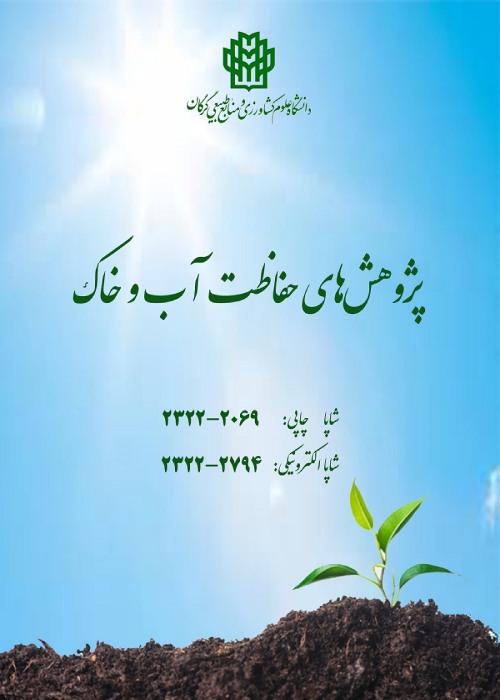Biochar production from peach trees pruned foliage and its qualitative properties at different temperatures
Most of soils in arid and semi-arid regions have less than one percent organic matter, so organic matter deficiency is mainly a limiting factor in mentioned areas. Millions of tons of trees pruned foliage are produced nationwide each year that can contribute to the supply of organic matter and the improvement soil fertility. Organic wastes from agricultural activities have created short and long-term negative consequences for agriculture and the environment. One way to overcome these issues is to convert organic wastes into biochars. Biochar is a highly stable, porous, carbon-rich and fine-grained organic soil conditioner derived from pyrolysis of organic debris. Biochar affects various soil physical (structure, bulk density, hydraulic conductivity), chemical (pH, cation exchange capacity, organic matter content), and biologic (microbial activity, microbial diversity, enzymatic activity, and microbial population) properties and improves soil fertility. The aim of this study was to investigate the effect of different pyrolysis temperatures on the physical and chemical properties of produced biochars from pruned foliage of peach trees.
The pruned foliage of peach trees was prepared from gardens around Gorgan city and after being conversion into sawdust, they were transferred to the laboratory. Then, in the electric furnace under argon gas, at various temperatures of 300, 400, 500, 600 and 700 degrees centigrade, within one hour, various biochars were produced. Then, properties of produced biochars including yield percent, ash content, acidity, salinity, organic carbon percentage, total nitrogen percentage, exchangeable potassium, phosphorus, calcium and magnesium were measured.
The yield of produced biochar significantly decreased with increasing temperature. The highest percentage of yield was observed at pyrolysis temperatures of 300 and 400 degree centigrade. The highest organic carbon (65%) and total nitrogen (0.55%) were obtained at 400 degree centigrade. Biochar quality gradually decreased with increasing temperature, with highest salinity (0.88 ds/m), acidity (8.6), and lowest yield (23%) observed in biochar produced at 700 degree centigrade. The highest amount of ash (%73) was obtained in biochar at 700 degree centigrade and the highest water storage capacity (0.085 gr/gr) was obtained in biochar at 300 and 400 degree centigrade.
Acidity and salinity of produced biochars from Peach tree foliage increased and the percentage of yield and organic carbon decreased by increasing the temperature of the pyrolysis process, therefore, in order to use in saline and alkaline land reclamation operations, biochar production from peach trees pruned foliage in 400 degree centigrade is recommended.
- حق عضویت دریافتی صرف حمایت از نشریات عضو و نگهداری، تکمیل و توسعه مگیران میشود.
- پرداخت حق اشتراک و دانلود مقالات اجازه بازنشر آن در سایر رسانههای چاپی و دیجیتال را به کاربر نمیدهد.


